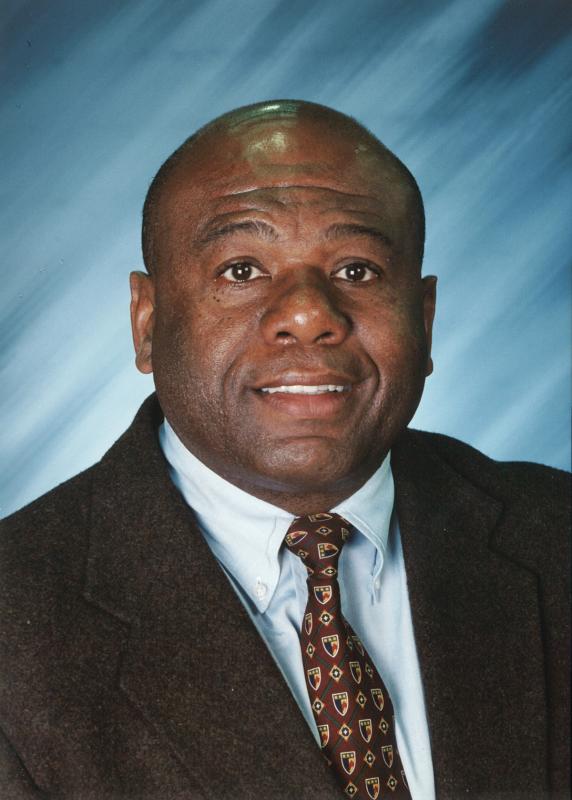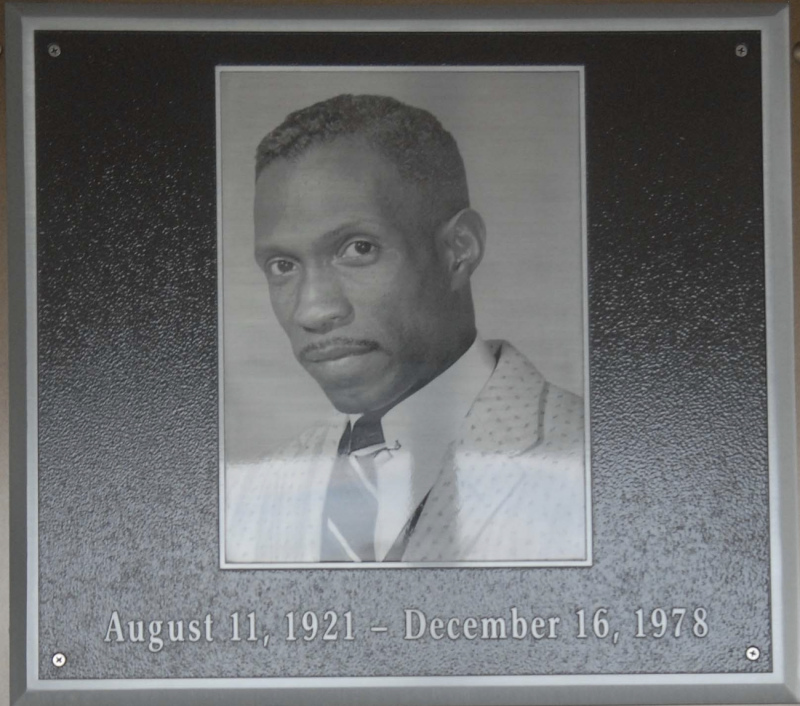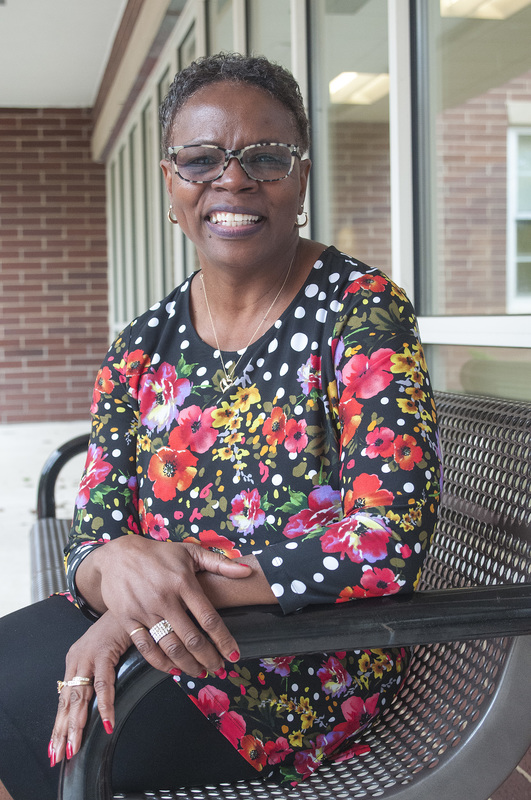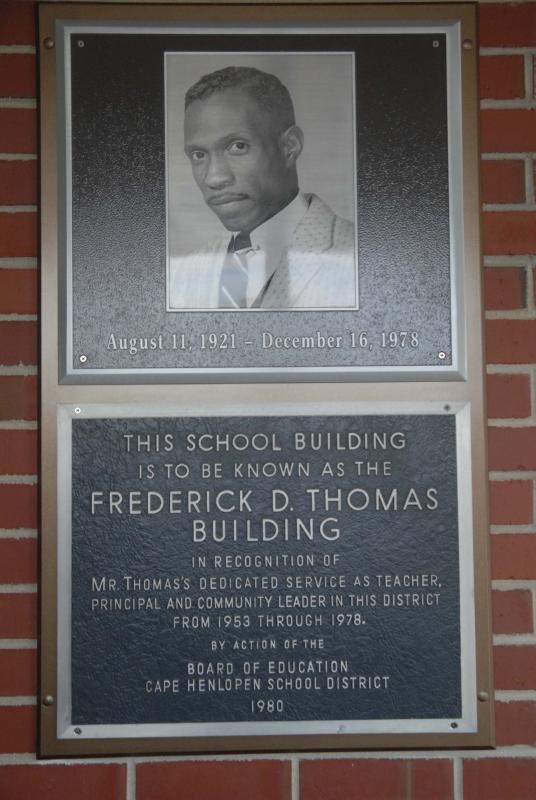Lewes middle school to be named after Frederick D. Thomas
The new middle school under construction in Lewes will be named after educator Frederick D. Thomas, the first African American administrator in the Cape Henlopen School District.
At the Sept. 22 school board meeting, Cape Director of Operations Jason Hale said the school naming committee received 125 nominations total, and 48 of them were for Frederick D. Thomas Middle School.
Breakwater Middle followed with seven nominations, Lighthouse Middle had five, Hale said, and the remaining proposed names had one to three nominations each.
The committee voted unanimously to recommend the district name the new school after the venerated educator, Hale said. Cape Superintendent Bob Fulton followed with a recommendation to the board, which approved the new name unanimously.
Fulton said the naming of this school generated the most interest from the community, which was asked to submit names for consideration to the district, as was the case with other new schools.
The current Fred D. Thomas Building doesn’t fit as an honor to who Thomas was and what he deserves, Fulton said, noting that at one time, Thomas worked at Shields Elementary on the future site of the new middle school.
Board members Bill Collick and Janet Maull-Martin were students at the segregated DuPont Avenue School where Thomas was principal. The school was dedicated as the Frederick D. Thomas Building in 1980 and rededicated in 2011.
“If you knew Fred Thomas, he was a tremendous icon for the school community,” Collick said.
Thomas was a teacher, principal and community leader in Lewes from 1953 until his death in 1978. He began teaching in a one-room segregated schoolhouse and retired as the Cape district’s first African American administrator.
In addition to teaching and simultaneously serving as principal of the DuPont Avenue School, Thomas was subsequently principal at Shields Elementary and then later at Lewes Junior High.
Collick, Maull-Martin reflect on Thomas
After the meeting, Collick and Maull-Martin provided background on Thomas’ influence on not just the community’s African American students, but on all area residents.
Collick lived on nearby Burton Avenue when he began school as a first-grader in 1958.
“I can’t say enough about Fred Thomas and his vision for what the possibilities could be for you as a student and an adult,” Collick said.
Thomas hand-picked all the teachers, Collick said, and they became visible mentors that students saw around town, in their neighborhood and at church.
“They talk about how it takes a village to raise a child,” Collick said. “Well, that vision was alive and well with Fred Thomas. He knew we had the ability to aspire to whatever we wanted to be.”
Many African Americans lived in town Lewes in those days, Collick said, and it was a true village. African American and white children played together, he said, and it didn’t take long for the kids to figure out that homemade peanut butter sandwiches taste the same no matter whose house you’re in.
Collick said Thomas got kids to work, learn and play together.
“I think he got the adults to do the same,” Collick said. “People realized we were much more alike than we were different.”
When he thinks about Thomas, Collick said the poem “The Bridge Builder” by Will Allen Dromgoole comes to mind.
The main character of the poem is an old man who, after crossing a vast chasm, builds a bridge even though he would never again cross the chasm. When questioned, the old man said he was building it to help the young people who come after him.
Thomas was a pioneer in many ways, Collick said. He was the first African American to be president of the Delaware teaching association, to chair the Lewes building and zoning committee, to be in the Lewes Lions Club, and to buy a home on Kings Highway, paving the way for others to follow.
“He showed you what you could do and be,” Collick said. “He lived the great American dream and he expected you to live it as well. There’s no more fitting name to be put on that school than Frederick D. Thomas.”
Collick commended the school naming committee, Fulton and school board for approving the name, noting that now people will be able to learn more about the educator, which will enhance their perspective of the history of education in Lewes.
“It says a lot for the Cape Henlopen School District,” Collick said.
Maull-Martin said she’s ecstatic the new school will be named after her former teacher who believed every student was important and special.
Ever since the Sussex Consortium moved out of the Fred Thomas Building, Maull-Martin said she has been advocating for the facility to return to being a vibrant space for learning.
“That was a place where young people were molded, and that’s where my love of education began,” Maull-Martin said.
The Fred Thomas Building now houses a couple life skills classrooms and offices for several district departments, including technology, facilities and major capital projects, child nutrition, transportation, specialists, homeless liaisons and archives.
Thomas was respected by all members of the community, said Maull-Martin, who noted that the knowledge and recognition of contributions made by African Americans to the town of Lewes seem to be disappearing.
“Not naming the school after him would be as if he didn’t exist,” she said. “He was instrumental in my life and the lives of all individuals in that school.”
Thomas’ concern for his students didn’t end when they left the building, Maull-Martin said, and he was equally respected by the white community. In 1975, when she was a new teacher in the Cape district, Maull-Martin said several apartment landlords turned her down when she was seeking a place to live.
So, she turned to Thomas for help. After she explained the situation, he told her to give him a couple days. When he called her back, he told her to go to the Moore Building in Rehoboth and ask for Mr. Moore. Just like today, the Moore Building then had retail spaces on the first floor and apartments on the second.
“Mr. Moore said, if Fred Thomas can recommend you, then you’re alright with me and I have an apartment for you,” Maull-Martin said. “I was probably the first African American to live on Rehoboth Avenue – because of Mr. Thomas.”
Since Collick and Maull-Martin passed through the DuPont Avenue School, they have each enjoyed tremendous success as educators and coaches.
Maull-Martin was a member of Cape High’s first graduating class. She has been a teacher, coach, Title 1 coordinator, assistant principal and principal during her career at Cape. She retired in 2014.
Collick taught at Rehoboth Elementary, then coached football at Delaware State University for nearly 20 years. After a stint at Sussex Tech, he joined Cape High as head football coach and dean of students. He retired in 2018.
Both Collick and Maull were elected to the school board in landslide decisions in 2019, and both will be inducted as Cape coaching legends at the Oct. 28 football game at Cape High.
























































